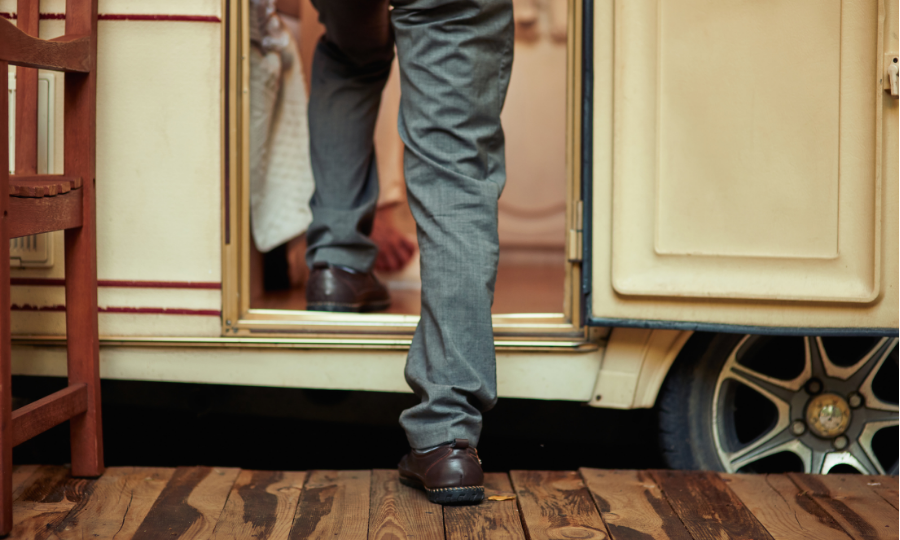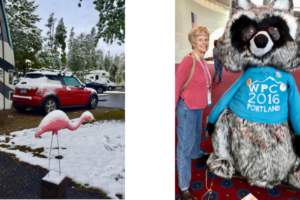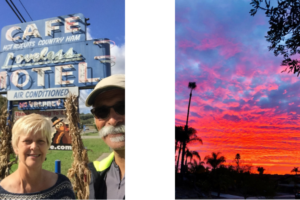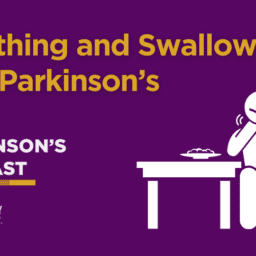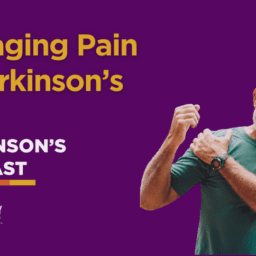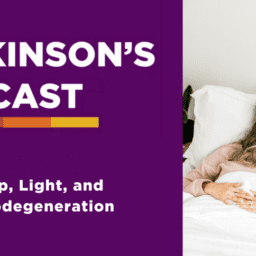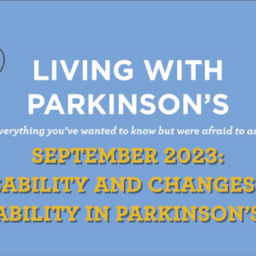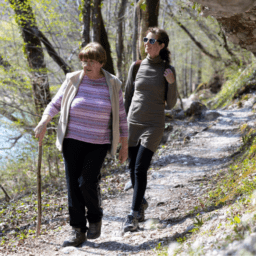In this episode of “Camping With Parkinson’s,” our guides Marty Acevedo and Carol Clupny explain how their Parkinson’s symptoms (motor and non-motor) are both negatively and positively affected by the RV travel life. They also share the adaptations they have made to manage these symptoms while on the road.
EPISODE 3: SYmptoms and Camping
TIPS AND TRICKS MENTIONED
Motor symptoms
- Rigidity can be an issue when it comes to getting out of bed in the morning, especially when you’re waking up in the limited space in an RV. Carol recommends using slippery sheets when possible to make movement easier
- An RV’s small size can actually be helpful when it comes to balance and stiffness. Because of the compact nature of everything, it’s easier to get from place to place, and often there are fewer tripping hazards
- If you find it difficult to get in and out of your RV, consider setting up a stool just below your running board to allow for easier and smaller steps. Marty cautions against carrying things using two hands while stepping into the van. When balance and rigidity symptoms are present, this can be a significant falling hazard. Rather, she suggests setting items on the shelf or counter from outside and then stepping into the van to put the items in their proper place
- Fine motor movements necessary in camping, such as hooking together cables or turning on and off a propane tank, can be difficult. It’s important that you remain patient with yourself, take breaks, and take your time
non-motor symptoms
- Sleep may actually improve with travel because of the increased activity during the day and fresh air
- Parkinson’s can often come with urinary urgency and/or constipation. These symptoms can become more manageable while traveling in an RV because of the easy access to a bathroom
- Since speech can become softer with Parkinson’s, it’s important to project your voice so you can communicate with your partner while driving your RV (which can be loud). This practice can actually be good for your voice because it forces you to use your vocal muscles, rather than succumb to the natural inclination of Parkinson’s to talk more softly
- Both Marty and Carol say they experience less pain and fatigue while traveling than they do at home
- Depression and apathy can be improved by traveling thanks to the new experiences you have and the new people you meet. Anxiety, however, can sometimes be increased as a result of the planning and adapting that is necessary for travel, so it’s important to have some strategies to manage your anxiety on the road in case you do experience it
GET INSPIRED
Check out some of the unique places, things, and adventures Marty and her husband, Ace Acevedo, have discovered thus far in their camper-van travels.
continue watching
Watch the rest of this series and learn from Marty and Carol about the different types of camping and campers, cognition and camping, nutrition and exercise, and medication and deep brain stimulation (DBS) tips for camping adventures.
GET CONNECTED
Email blog@dpf.org with your best camping stories or tips and tricks you would like to share with the Parkinson’s community. Interested in getting in touch with Marty and Carol? You can reach out to them personally by visiting Marty’s Ambassador page or Carol’s Ambassador page.


